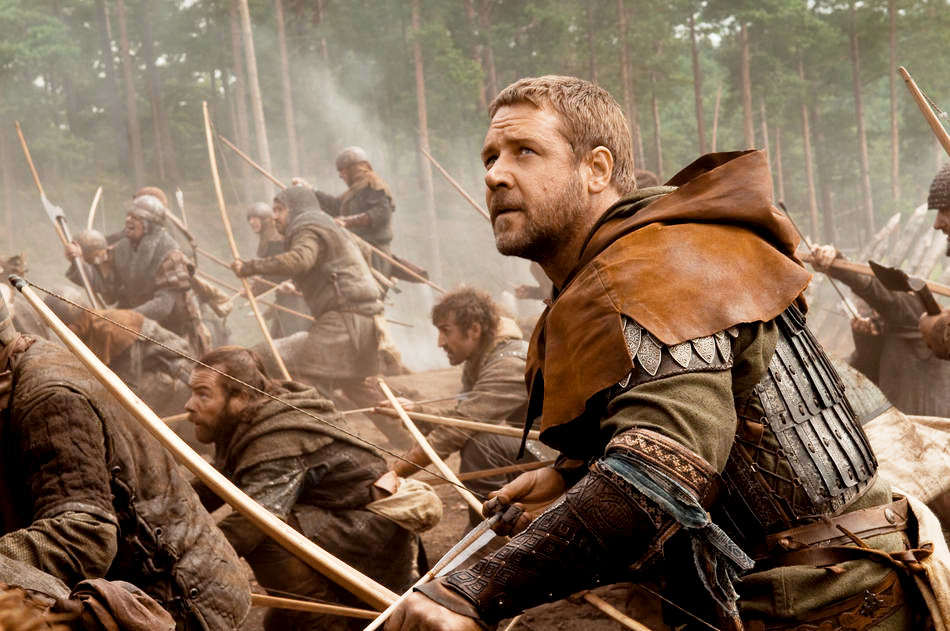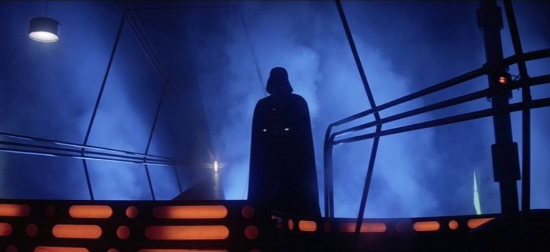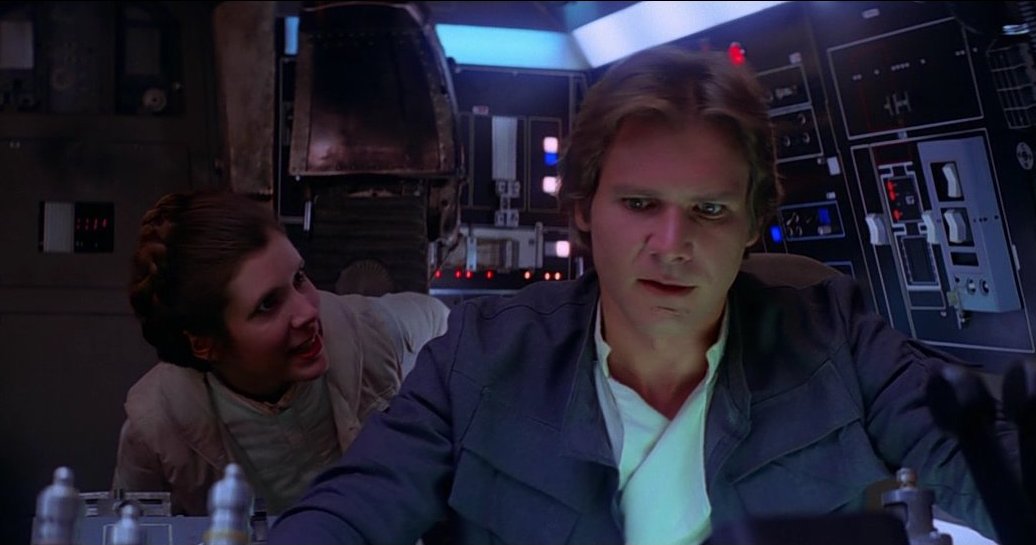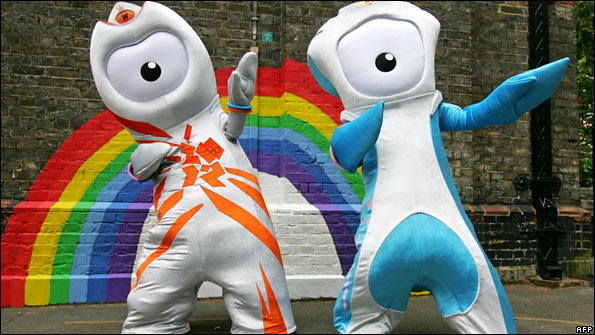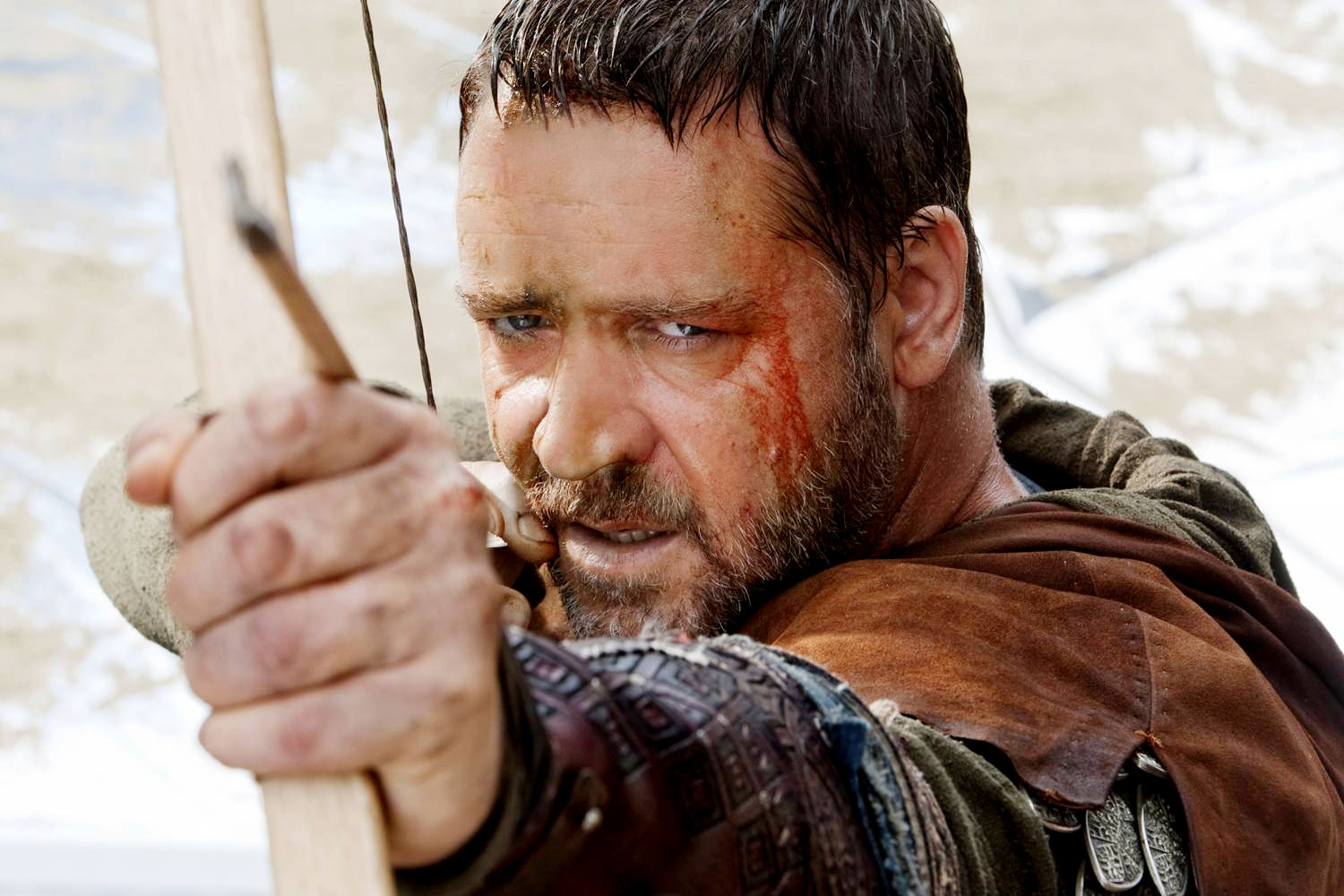
I’ll give it this:
Ridley Scott’s high-minded, lavish, and more-than-a-little-dull take on Robin Hood, which I sense slipping from memory less than a week after I saw it, was actually
better than I had expected going in. In fact, if you go for medieval sieges and Anglo-French intrigue and whatnot, the movie is even vaguely pleasant for most of its run, in a well-made-but-snoozy, BBC-production sort of way. But, with the possible exception of seeing another late-career turn by Max Von Sydow (who has more to do here than in
Shutter Island) I just can’t find a reason to recommend spending two-plus hours of precious life watching this film.
For that matter, I can’t figure out the point of making this sort of Robin Hood in the first place. On its face, what we have here is one part superhero origin-story, a la Batman Begins and Casino Royale, and three-parts “the real story behind the legend,” like Troy and King Arthur. To which I say yet again, why not go Liberty Valance with it and just print the Legend? Sure, when it comes to actual, honest-to-goodness events like The Alamo, I prefer the historical approach. But this is Robin Hood — wHy sO sEriOUs? Do we really need all these grim, earnestly realistic, edutainmenty muckrakes through the fiction and folklore of the past? Who enjoys them?
In its favor, Robin Hood doesn’t feel as notably bereft of its legend-y elements as Troy-without-Gods and King Arthur-without-wizards did. Still, the movie is so committed to its Serious Purpose of telling-the-untold-story that, even with occasional flashes of Chaucerian ribaldry — like Von Sydow happily noting his rare “tumescent glow” and Little John (Kevin Durand) insisting he’s “proportionate” — the tale feels mostly robbed of its usual vagabond charm. Simply put, these Men are not Merry. As such, this iteration of Robin Hood ends up feeling a lot like Ridley Scott’s last well-intentioned-but-plodding historical-siege epic with high production values, a cast of hundreds, and no pulse: Kingdom of Heaven. (FWIW, I’ve never seen the much-hyped director’s cut of Kingdom — I saw the deeply boring “Two Towers-knockoff” theatrical version.)
To be fair, the tendency of Robin Hood to read 21st-century mores back into medieval Christendom works better than the exact same failing did in Kingdom. (For one, Robin Hood always was a wealth-redistributor and subverter of authority, albeit not a teabagger. For another, Robin’s nemesis King John really did sign and renounce the Magna Carta. As for Maid Marian turning into Eowyn…well, Joan of Arc‘s only a few centuries down the road, I guess.) But otherwise, Kingdom and Robin Hood are pretty much two peas in a pod — Both are well-made, well-meaning, historically-minded bores.
Given the general lack of inspiration here, one has to wonder what happened to Nottingham, the Robin Hood film Ridley Scott and Russell Crowe said they were making, where the famous tale would be told from the Sheriff of Nottingham’s point-of-view (and where Crowe would be playing both Robin and the Sheriff.) Not only does that sound like a more intriguing project, but, let’s face it, Crowe is more of a Sheriff-of-Nottingham kinda guy. As it is, he’s too grim and lumbering to bring much magic to this Sherwood Forest (and, yes, his accent is all over the place.) Yes, Crowe can be a very good actor at times, but he’s just miscast here. (Fwiw, the Sheriff is now a foppish, throwaway character in this telling, played for laughs by the most recent Mr. Darcy, Matthew MacFadyen.)
Still, others fare better. As Marian, Cate Blanchett handles some really clunky writing with her accustomed grace. Mark Strong, late of Sherlock Holmes and Kick-Ass, adds yet another rogue to his gallery as French-loving mini-boss Sir Godfrey and, while his motivations don’t make much sense, he’s still a presence onscreen. I thought Oscar Isaac (who with Strong is a Ridley Scott veteran from the under-appreciated Body of Lies) was particularly solid as the spoiled but not entirely clueless King John.
And, along with the aforementioned Max Von Sydow, the venerable Dame Eileen Atkins is on hand as Eleanor of Aquitaine to give Robin Hood a further touch of class. (In the debit column, Mark Addy is actually fine as Friar Tuck, but, every time he showed up, he made me wish I was watching Red Riding instead. And, for whatever reason, I just can’t take William Hurt seriously anymore. He’s hammier than Walken to me.)
Still, the acting here can’t deflect attention away from the fact that Ridley Scott’s Robin Hood is misconceived in fundamental ways. To take another example, the movie begins and ends with two large battle setpieces. First, a French castle is besieged by Robin and the army of King Richard the Lionheart (the seemingly ubiquitous Danny Huston — hey, he does gravitas for cheap!) on the way back from the Crusades. And, in the final reel, Robin and varied English forces try to repel a French invasion in a big and rather nonsensical beach battle. (Question: Why have Robin — an archer — lead a cavalry charge right into the thick of the battle, particularly when the English were already busy decimating the Gauls from the high ground with arrows? Ah, yes, for movie purposes.)
Sure, both of these battles are well-shot and well-executed, as one would come to expect from the director of Gladiator and Black Hawk Down. But why are they even part of this story? When did the tale of Robin Hood ever involve large-scale warmaking, or, for that matter, the 13th century version of Saving Private Ryan? Here’s the thread: Bandit steals from rich, gives to poor, makes merry, meets Marian. Rinse, repeat. That’s all you gotta do, people. The story of Robin Hood has endured for centuries now — You don’t have to improve on it or muckrake it to death. Just tell the darned thing well.
